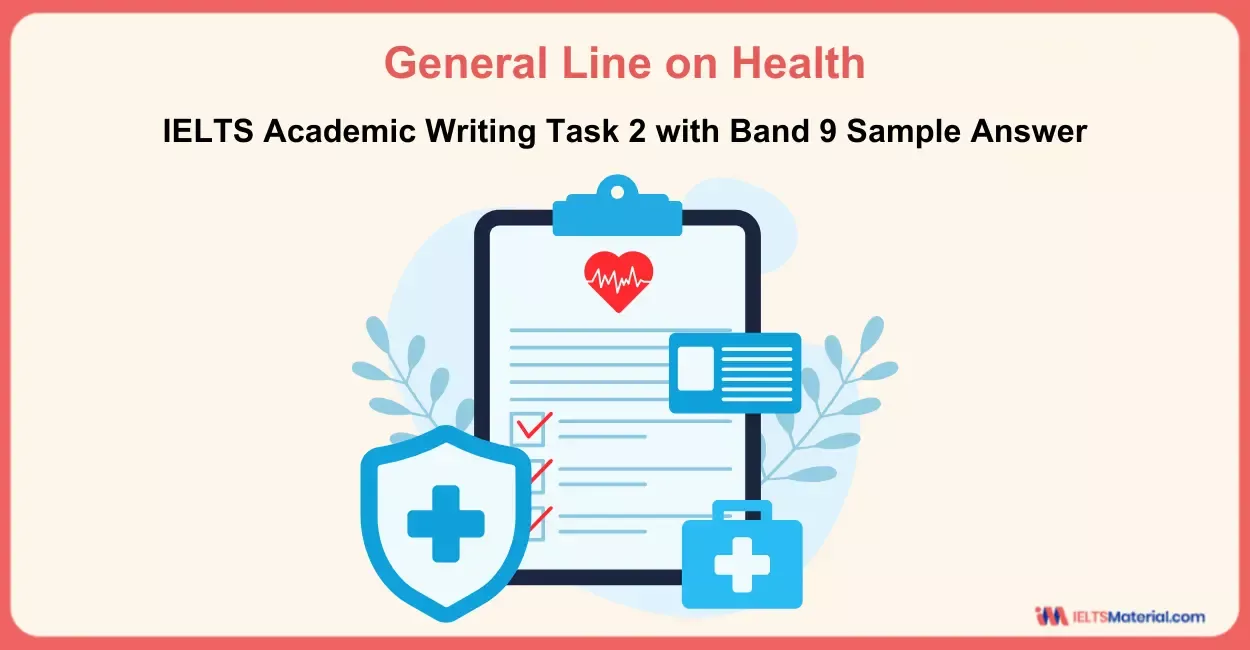IELTS Informal Letter: Definition, Format, Examples & Tips for Band 8+
9 min read
Updated On
-
Copy link
Learn how to IELTS informal letters by checking out this article covering IELTS General Writing Task 1 informal letters, structure, tone, and mistakes. It provides letter samples and tips to boost preparations for your target band score of 9 on IELTS.
Table of Contents
- What is an IELTS Informal Letter?
- Structural Breakdown of an IELTS Informal Letter
- Tone of the IELTS Informal Letter
- An Outline of the Task 1 GT Informal Letter
- IELTS Informal Letter Samples
- Tips for Success in IELTS General Informal Letter
- Common Mistakes to Avoid While Writing IELTS Informal Letter
- 10 Examples for the IELTS General Writing Task 1 Sample Informal Letters

Effective IELTS Essay Connectors for Writing Task 2 & Task 1
The Writing Task 1 in IELTS General Training requires you to write a letter in response to a given situation. You’ll need to choose the appropriate tone and style, which can be informal, semi-formal, or formal, depending on the context.
In this blog, we will discuss every important aspect of an IELTS informal letter and provide IELTS General Writing Task 1 informal letter samples along with an IELTS informal letter sample pdf for better practice.
What is an IELTS Informal Letter?
A common type of task is writing informal letters to friends or family. It is typically written in a casual and friendly tone and does not follow any specific format, while still ensuring cohesion and coherence in IELTS Writing.
However, there are some basic parts that all informal letters should include. The following are the basic parts of an IELTS Writing Task 1 general informal letter:
- Opening Salutation
- Body (Body Paragraphs)
- Closing Statement & Salutation
Examples of IELTS Informal Letter Sample
Let us have a look at some samples of Informal letter questions asked in the IELTS General Writing Task 1.
Sample 1
Write a letter to your friend in another country where you would like to visit for the holidays. In your letter, you should:
- explain your travel plans
- describe the interesting places you plan to visit
- ask for suggestions for sightseeing options
Sample 2
You live in a block of flats, your neighbor makes a lot of noise which has caused problems for you. Write a letter to your landlord. In your letter, you should:
- explain the situation
- tell him/her how you are affected by this
- suggest what you want the landlord to do.
Structural Breakdown of an IELTS Informal Letter
Understanding the structural breakdown of an IELTS informal letter is as crucial as learning the IELTS General Writing Task 1 sample formal letters for achieving a high IELTS band score. Here’s an informal letter format IELTS to help you write a great GT Task 1 informal letter.
-
Salutation
The letter’s opening salutation should begin with ‘dear, Hi, Hey, etc’ and use the first name of the receiver.
For Example:
Dear Jasmeet
Or
Hi Jasmeet
-
Body Paragraph 1
This is also known as the opening paragraph. It includes the purpose of the letter and what you are going to discuss in the letter. You can paraphrase the question and begin the letter with expressions like ‘How are you?’, ‘I hope you are in good health,’ etc.
-
Body Paragraph 2
This paragraph includes the supporting details covering all the bullet points mentioned below the question. Close the paragraph with 1 or 2 concluding lines.
-
The Complementary Closure
This closure is not mandatory, but you can include a few words or a single line. It can help you enhance your test scores. For example: Looking forward to hearing from you
-
Closing Salutation
The closing salutation of the informal letter includes your best wishes and your name along with it. For example: Warm Regards
Tone of the IELTS Informal Letter
The tone of an IELTS informal letter should be friendly, warm, and conversational, aiming to mimic the natural flow of everyday communication with friends or family. Using casual language, personal anecdotes, and a relaxed style helps convey the intended message in a relatable and engaging manner.
However, avoid using abbreviations and acronyms like ‘bcz,’ ‘LOL,’ ‘IDK,’ ‘luv,’ ‘ASAP,’ etc. Instead, to demonstrate your understanding of informal writing, you can use contractions like ‘I’m,’ ‘I’d,’ ‘she’s,’ or ‘he’s.’ This approach not only makes the letter feel genuine but also showcases your ability to adapt your writing style to suit informal contexts.
Check the video below to learn how to answer IELTS General Writing Task 1 informal letter questions!
An Outline of the Task 1 GT Informal Letter
Here’s a brief outline of the structure of an informal letter in IELTS Writing. This will help you understand how to write a successful IELTS informal letter.
|
Dear Kanika, (Opening Salutation) It’s been a while since I’ve heard from you. ________________ (Body Paragraph 1) ____________________________ (Body Paragraph 2) Hope to hear from you soon. (Complimentary Closure) Best Wishes Deeksha (Closing Salutation) |
Mastering letter types and essay formats is key for IELTS success.
Join our IELTS online classes to perfect these skills!
IELTS Informal Letter Samples
Now, let’s explore three IELTS General Writing Task 1 sample with answers of informal letters that demonstrate different scenarios you might encounter in the IELTS General Writing Task 1, along with their formal letter example IELTS, to achieve a top IELTS band score.
Sample Formal Letter #1
You have a friend who has always liked the car you currently drive. Now you have decided to sell the car. You think your friend might be interested in buying it. Write a letter to this friend. In your letter,
- say why you want to sell your car
- describe the condition of the car
- invite the friend to come and see the car himself/herself someday
Model Answer
Dear Zikhish,
I hope everything is superb at your end. I’m writing this letter to share exciting news with you that I’ve decided to buy a new car for myself and have finalized which one to go for. However, for now, I’d like you to know that I’m planning to put my old car on sale and I know you’ve always been very interested in that car. Hence, I’d like you to buy that from me.
As you know, my cousins live with me, and it is difficult for all of us to get comfortably fit in that car due to its size. Therefore, rather than selling it to someone else, I’d want you to buy that. The car is in amazing condition and has covered 18,000 kms so far.
Why don’t you come over here to see it for yourself? If everything goes well, we will finalize the deal. I’ll be waiting for you.
Loads of love,
Pakhi
Sample Formal Letter #2
You are studying English at a private language school attended by many international students. You are planning a surprise birthday party for a friend who has been feeling particularly sad and homesick. Write to another classmate and invite him/her to the party.
In your letter:
- explain the reason for the party
- give the date and time of the party
- suggest what the classmate could bring to the party
Model Answer
Dear Keith,
I hope you’re doing fine and excited about the midterm results that are going to be declared next month. Honestly, I’m scared of that. Anyways, Keith, I’m writing this letter to invite you to the birthday party for our classmate, Zirshol, from Ukraine. His b’day is on March 19, and we are planning to give him a surprise b’day party to which all of our classmates are invited.
Actually, of late, he’s not been feeling well and quite desolated right after he came back, and it feels so bad to see a chirpy guy like that. Hence, this party would cheer him up, and he won’t feel left out as we’re his friends. The party shall be on March 19 from 8 PM to 12 PM though it may stretch.
It’ll be amazing if you bring your music system and add to the frolics of the party. We’ll have fun!
Much love,
Imran
Sample Formal Letter #3
A friend of yours has recently written to you asking for advice about a problem at work. You have had a similar problem at your workplace in the past. Write a letter to your friend.
In your letter,
- tell your friend how you feel about the problem
- explain how you faced a similar situation in the past
- suggest possible solutions to the problem
Model Answer
Dear Simone,
I hope you’re doing well. I recently got your letter and learnt that you’re going through a rough patch at your work, which got me concerned about your situation. However, let me tell you, dear friend, that it is part and parcel of the corporate world.
I can completely get into your shoes and understand what you may be going through, given that I’m in the same domain as you. I went through the same phase when I was given an additional role to analyze the dashboards and prepare an insight report for the collected data as the bandwidth of the organization was short. However, I talked about this to the management, and they understood how this was adversely affecting my functionality.
I’d suggest you have a one-on-one discussion with your manager or the HRBP as the management is prudential enough to take note of what its employees are going through.
Remember, “This too, shall pass.”
Much love,
Lily
Looking for more Task 1 GT informal letter samples for practice?
Download the IELTS Informal Letter sample PDF!
Tips for Success in IELTS General Informal Letter
To excel in writing Task 1 GT informal letter, consider the following IELTS exam preparation tips for band score of 8+:
- Understand the Tone - The tone of informal letters should be cheerful and friendly. Keep your writing informal—you're writing to a person you know. It's acceptable to say things like "I hope you're doing well" or "I'm writing to invite you."
- Use Personal Pronouns - Since informal letters are a form of communication between known people, using ‘I’, ‘you’, and ‘we’ is more common. This gives your letter a more casual, conversational flow.
- Contractions are Allowed - Unlike formal letters, it’s perfectly acceptable to use contractions like ‘I’m’ instead of ‘I am’ or ‘can’t’ instead of ‘cannot’. This makes the letter sound more natural.
- Organize Your Thoughts - The letter should have a distinct structure, including an introduction, a body, and a conclusion, even though it is informal. Make a habit of ensuring that every aspect of the task is completed in a logical order while practising recent IELTS Letter Writing topics.
- Use Colloquial Expressions - Phrases like ‘looking forward to it’, ‘let’s catch up’, or ‘it would be great to see you’ are typical in informal letters. These expressions help you sound more natural and personal.
- Practice regularly. - Use IELTS General Writing Task 1 practice tests to write formal letters on various topics to enhance your letter-writing skills.
Common Mistakes to Avoid While Writing IELTS Informal Letter
Candidates frequently make mistakes when they answer the IELTS General Writing Task 1 informal letter questions. Here's a list of the most common mistakes to watch out for when you're getting ready:
- Ignoring the Task Requirements - A few candidates neglect to reply to every section of the question. Make sure your letter has all the information that is required. Make sure these are stated clearly, for instance, if the task asks for the purpose of the party, date, and location.
- Too Formal Language - One of the most common errors made by candidates is to use overly official language in an informal letter. Words like 'Please be advised' or 'I wish to inform you' are overly formal in this situation. Choose more informal options instead, like 'Just wanted to let you know'.
- Inconsistent Tone and Vocabulary - It's a common mistake to switch between formal and informal tones. Don't change the way you address the reader. Don't, for instance, begin with the formal ‘I hope this letter finds you well’ and close with the too-casual ‘Cheers, mate!’. So, use the appropriate IELTS Vocabulary and tone.
- Spelling and Grammar Errors - Even though the letter is informal, it’s important to use correct spelling and IELTS Grammar. Pay special attention to common errors, like subject-verb agreement and proper punctuation.
10 Examples for the IELTS General Writing Task 1 Sample Informal Letters
Check out the sample IELTS General Writing Task 1 informal letters given below and get ready for IELTS Writing.
- Example 1
- Example 2
- Example 3
- Example 4
- Example 5
- Example 6
- Example 7
- Example 8
- Example 9
- Example 10
To sum up, while composing an informal letter for IELTS General Writing Task 1 can appear simple, achieving high marks requires adhering to the task's requirements and keeping the appropriate tone. You may produce a successful informal letter that addresses all the necessary topics by utilizing personal pronouns and contractions, speaking in a conversational yet formal tone, and avoiding frequent errors to improve IELTS General Training letter writing skills. In order to become familiar with the structure, practice different questions as well. Also, before submitting, carefully proofread your work for grammatical, punctuation, and spelling mistakes.
Useful Links
- How to End an Informal Letter to a Friend? - IELTS Writing Task 1
- Connectors & Linking Words for IELTS Writing Task 2
- IELTS Letter Writing – Types and Tips
- IELTS Suggestion Letter: Structure, Useful Phrases & Samples
- IELTS General Writing Task 1 Linking Structures
- Top 20 Important Collocations for IELTS
- IELTS Writing Answer Sheet
- Useful Structures to Help You Get Band 7.5+ in IELTS Writing
- How to Boost or improve Your Vocabulary Score in IELTS ?
Frequently Asked Questions
What are the things to remember while attempting an informal letter?
What is the format of the informal letter?
What is the difference between informal and formal letters?
Mention the types of informal letters
Is vocabulary important in an informal letter?
Practice IELTS General Writing Task 1

Band 9 IELTS Vocabulary for Academic Writing Task 1 + PDF
Explore other General Writing Task 1 Articles


Recent Articles

Kasturika Samanta









Post your Comments
4 Comments